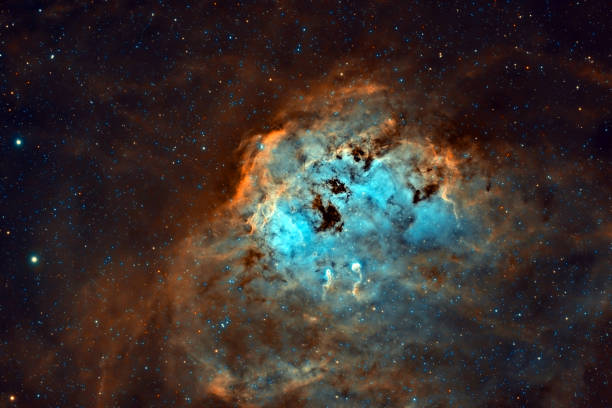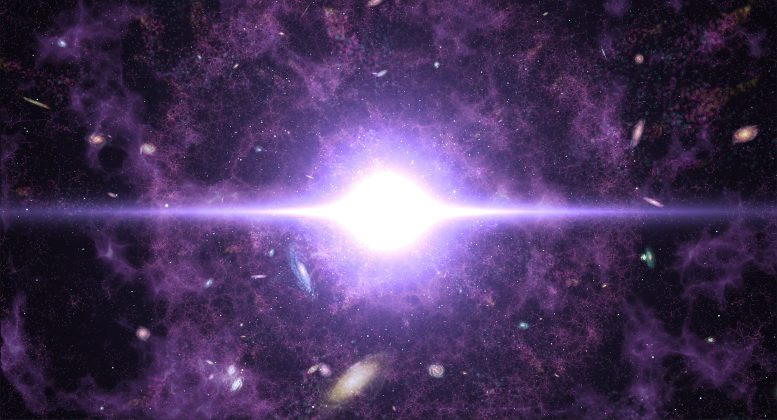The origin of dark matter, which comprises roughly 80% of the universe’s matter, remains an unsolved puzzle in physics.
Researchers from Texas have introduced a novel theory suggesting that dark matter may have been produced before the Big Bang during the universe’s brief inflationary phase.
This concept, detailed in a paper, challenges traditional dark matter formation theories.
Inflation, a rapid expansion of the universe occurring about 10⁻³⁶ seconds after its formation, explains many cosmological mysteries, such as the universe’s flatness and homogeneity.
Traditionally, it has been thought that any matter created during inflation would be erased by the expansion.
However, the new WIFI (Warm Inflation via Ultraviolet Freeze-In) model proposes that dark matter formed during this period avoided being diluted.
The theory builds on the freeze-in mechanism, where dark matter particles are created in interactions with a thermal bath of particles in a hot, energetic environment.
Unlike previous models that tied dark matter’s creation to post-inflation processes, WIFI posits its production occurred during inflation itself.
The inflaton field, responsible for driving inflation, transfers some energy to radiation, which in turn generates dark matter particles.

“This is unique because, in most models, anything created during inflation is inflated away,” said Katherine Freese, Director of the Weinberg Institute of Theoretical Physics.
“Our model shows that dark matter can survive this process.”
The implications of the WIFI model extend beyond dark matter.
Co-author Barmak Shams Es Haghi highlighted its potential to explain the creation of other particles critical to the universe’s evolution.
While the model remains theoretical, future cosmic microwave background experiments may confirm key aspects, such as warm inflation.
Such breakthroughs could reshape our understanding of the universe’s earliest moments and the origins of its elusive dark matter.
Physicists now have a fresh framework to explore, potentially bringing us closer to unraveling the mysteries of the cosmos.

